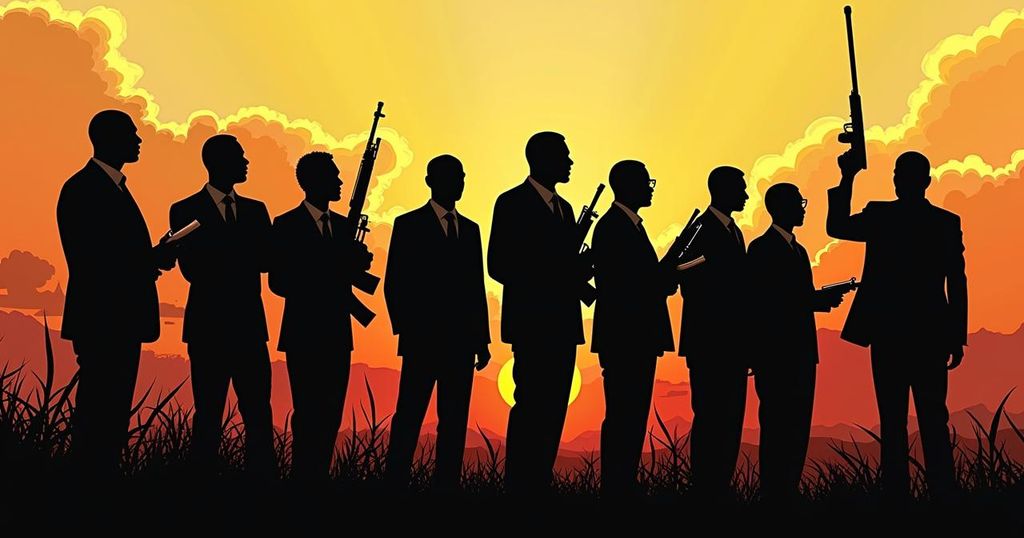Mozambique’s Elections: A Chance for New Leadership Amidst Ongoing Challenges
Mozambique is poised for significant elections that may result in the election of a president born after its independence in 1975. With 17 million eligible voters, key candidates include Daniel Chapo of Frelimo, opposition leader Ossufo Momade of Renamo, independent candidate Venancio Mondlane, and Lutero Simango of the MDM. The elections will address critical issues like armed conflict, job creation, and climate resilience, reflecting a desire among youth for transformative leadership.
As Mozambique prepares for its elections, it stands on the brink of a potential political renaissance, as the country may see a president for the first time born after its independence in 1975. Approximately 17 million out of 32 million Mozambicans are eligible to vote in these crucial parliamentary and provincial elections across the nation’s 11 provinces. The incumbent President Filipe Nyusi, representing the ruling Mozambique Liberation Front (Frelimo) party, is set to step down after an eight-year term. Nyusi has faced significant challenges during his presidency, notably the corruption scandal surrounding the so-called “tuna bond” deal, which involved secret loans for government-controlled fishing companies, resulting in severe repercussions for Frelimo, including the imprisonment of several high-ranking officials. As the younger generation of Mozambicans expresses fatigue with the political status quo, the question of leadership becomes even more pronounced as four candidates vie for the presidency. The leading candidate appears to be Daniel Chapo, aged 47, who has accumulated significant power within Frelimo since joining politics in 2011. He has promised to address the ongoing armed conflict in Cabo Delgado and is working to distance himself from Frelimo’s corrupt legacy, although many younger voters remain skeptical about Frelimo’s ability to impart genuine change. Ossufo Momade, 63, the leader of the opposition Mozambican National Resistance (Renamo), remains connected to the past despite his efforts to position Renamo as a viable alternative in the current political landscape. Venancio Mondlane, 50, offers a fresh perspective and has garnered support from the youth as a potential real change agent in Mozambique, while Lutero Simango, 64, advocates for economic development through local job creation. Voters will not only select a president but also 250 members of parliament and various provincial governors amid pressing issues including an ongoing armed conflict in Cabo Delgado, job creation hurdles, and climate resilience challenges exacerbated by recent natural disasters. The elections come at a time of significant unrest and discontent, particularly among the youth, who demand solutions to issues like poverty, unemployment, and violence.
Mozambique has experienced a turbulent political history, transitioning from colonial rule to independence and then to a protracted civil war. With its significant natural resources and a predominantly young population, the country faces a crisis of leadership as it grapples with unemployment, corruption, and ongoing conflicts. The elections occur against a backdrop of rising tensions regarding governance and the management of resources, which underscore the need for effective and transformative political leadership. The involvement of younger candidates like Daniel Chapo and Venancio Mondlane reflects a shift in the political landscape, aiming to connect with the younger electorate seeking genuine change. Additionally, the armed conflict in the Cabo Delgado region, driven by extremist group activities, adds a layer of urgency to the electoral process, where security and stability are paramount.
The elections in Mozambique are pivotal in determining the nation’s future leadership amid significant challenges, including corruption and prolonged conflicts. Voters are poised to make choices that may redefine Mozambique’s political landscape, particularly in favor of younger candidates who resonate with the aspirations of the youth demographic. The outcome of these elections will not only impact the president but also will affect the legislative framework and potential solutions to pressing issues such as economic instability, security, and climate resilience. As the count begins, the hopes and demands of millions will shape the path ahead for Mozambique.
Original Source: www.aljazeera.com




Post Comment